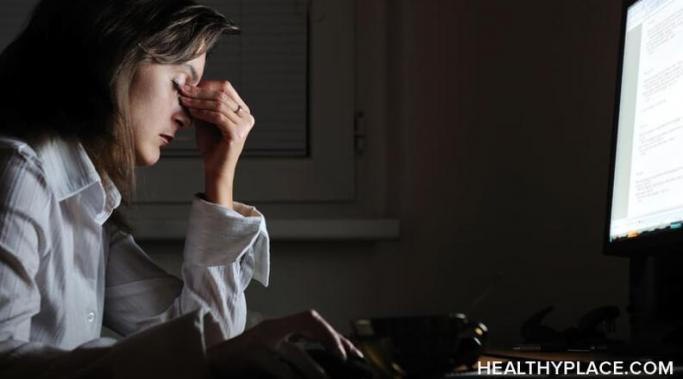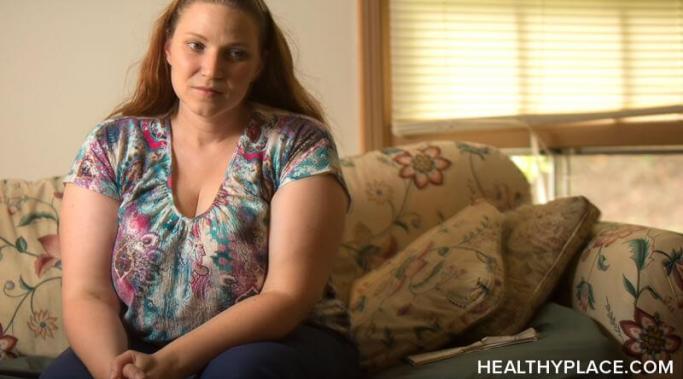Blogs
A healthy relationship with yourself affects your happiness. Only a few short years ago, I was by most definitions incredibly successful. I was making a good living and had achieved my goal of running my own non-profit organization. But I wasn't happy. Since then, I learned that only the relationship with yourself truly matters.
There is no cure for dissociative identity disorder (DID). It is a complex disorder that can be treated, but that doesn't necessarily mean it can be cured. There are several methods of treatment, from medications to therapy. It can take years, but successful treatment for DID is possible. Does that mean there is a cure for DID?
Choosing exercise to help treat depression is a great idea. Not only does it release feel-good endorphins, it allows for social interaction as well as gives structure to our days. In this post, I share how to exercise to help treat depression as well as three things to consider when you exercise to help treat depression.
My anxiety treatment is not working anymore. In the summer, I wrote about how I was decreasing my antidepressant to lessen my schizoaffective anxiety. That time, it worked (Taking an Active Role in My Psychiatric Medication Changes). But earlier this month when I tried to do the same thing for the same reasons, it didn’t work. I’m not sure why it didn’t help, but I have some ideas.
I’m frequently asked about my favorite anxiety-reduction techniques. On one hand, choosing approaches to overcoming anxiety is difficult because there are so many different tools and techniques. Also, each and every one of us is a distinct individual and our experience with anxiety is unique. That said, I do, indeed, have favorite anxiety-reduction techniques. Here’s a look at my favorites and why I love them.
It's hard to feel confident around others when you're feeling insecure or anxious. Many people struggle with finding the right words, talking too much or not enough, which makes everyone uncomfortable. It's very common to feel insecure around new people, in work or academic situations or when you're in the presence of a strong personality. It's possible to feel more confident, even in the most intimidating circumstances, with this quick communication tip.
Self-esteem impacts career success and low self-esteem can be one of the countless roadblocks that you will encounter when you follow a particular career path. Whether you’re setting up a business or developing a skill that you’re passionate about, there can be a lot of hardship involved – you may make disheartening mistakes and be confronted with serious financial struggles (Emotional Resilience: Bounce Back from Difficulty). When you commit yourself to an authentic career path, low self-esteem is another major setback you may have to contend with. It can make you give up when the going gets tough and cause you to doubt your abilities. It’s imperative to shake off this mental baggage causing low self-esteem that hinders career success.
When did you know you were dating someone with a mental illness? It may have started like this: You met the most amazing person. You have been on a few dates, and the chemistry is there. It's exciting, and it's going so well. And then one night you have a deep conversation and you learn that you're dating someone with a mental illness. What now?
You would think that the reasons to recover from self-harm would be obvious. In a way, they are. You would also think that those who currently suffer from self-harm tendencies would recognize these reasons and use them to motivate their recovery. In a way, they do. But that is the thing about mental illness: no one chooses to be sick. Rationale tells us that the drawbacks of self-harm far outweigh the benefits but our sick brains tell us otherwise. The trick is to access and strengthen our rationale — that is, the healthy part of our brains that still exists somewhere inside of us — to do what we know we need to do (Mental Illness Isn't a Choice, But You Still Have Choices). Finding reasons to recover from self-harm is part of the process.
Many abuse survivors grapple with feelings of shame after abuse. When someone develops posttraumatic stress disorder (PTSD) as a result of her abuse, that shame can become a long-term problem. Shame after abuse doesn't have a rational basis, but even people who know it's irrational to feel shame over being abused can still experience it. Unfortunately, emotions don't always follow logic.









